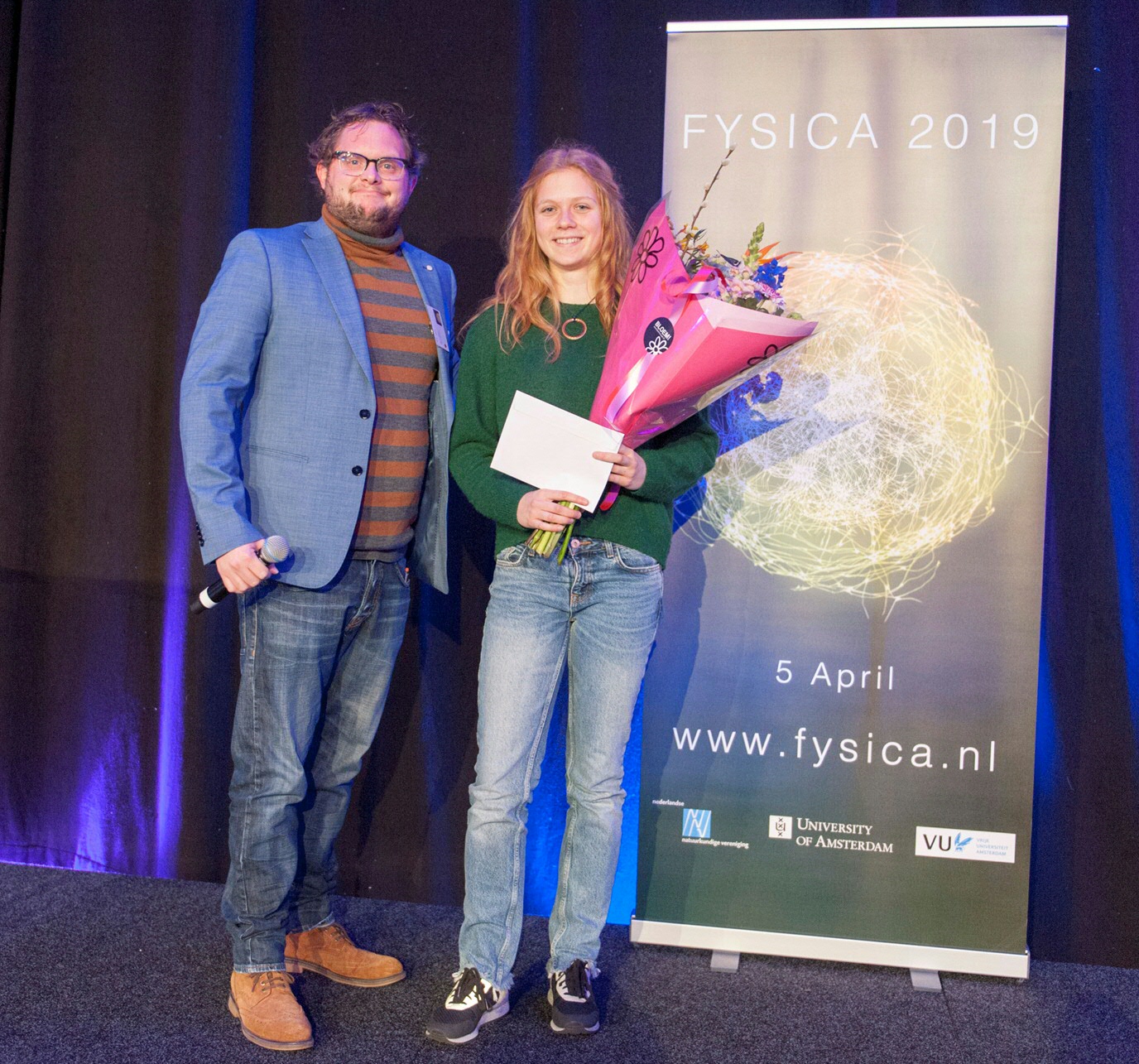Prijs Beste Natuurkundescriptie voor Groningse studente Marit Fiechter
Marit Fiechter, bachelorstudente Natuurkunde aan de Rijksuniversiteit Groningen, heeft de SPIN-prijs voor beste Natuurkundescriptie gewonnen. Zij ontving de prijs uit handen van de NNV-voorzitter Diederik Jekel tijdens de FYSICA 2019-conferentie.
Jaarlijks houdt de Vereniging SPIN (Studenten Physica in Nederland) een wedstrijd voor de beste bachelorscriptie in natuurkunde. De NNV (Nederlandse Natuurkundige Vereniging) stelt de hoofdprijs van €500,- ter beschikking. Vanuit iedere universiteit of hogeschool kan de beste bachelorscriptie of –project worden opgestuurd door de studievereniging voor natuurkunde.
De jury, bestaande uit Suzanne van Dam (TU Delft), Rick Bethlem (VU) en Robert Klein-Douwel (RUG), koos op basis van haar scriptie en haar presentatie Fiechter tot winnaar.
Vorig jaar won Marit Fiechter de GUF-100-prijs voor beste student van de Faculty of Science and Engineering (RUG). Met deze geldprijs kon ze onderzoek doen naar koude moleculen aan het JILA in Boulder (Colorado), een van de leidende onderzoekstinstituten op dit gebied. Haar scriptie 'Towards narrow-line cooling of yttrium monoxide (YO)' ging ook over koude moleculen. Volgend studiejaar gaat Fiechter de master Physics volgen bij de ETH Zürich.

Meer nieuws
-
17 februari 2026
De lange zoektocht naar nieuwe fysica
-
10 februari 2026
Waarom slechts een klein aantal planeten geschikt is voor leven
